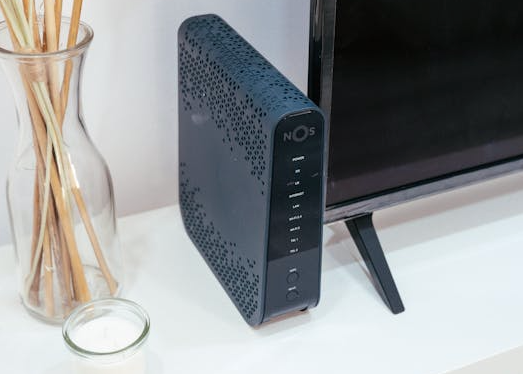Explore the best internet providers for streaming Disney Plus, Hulu, and Max. Compare speeds and plans from Xfinity, Spectrum, AT&T, and more to ensure seamless
12 December, 2024 | Posted by: Pablo Mendoza
Category: Internet, Service Providers, Streaming | No Comments

Streaming services like Disney Plus, Hulu, and Max have revolutionized the way we consume content, offering endless hours of entertainment at our fingertips. However, your streaming experience largely depends on the quality and speed of your internet connection. Choosing the right internet provider is crucial for uninterrupted streaming, especially if you’re subscribing to the popular Disney Plus, Hulu, and Max bundle.
In this guide, we’ll compare the best internet providers for streaming, including Xfinity, Spectrum, and AT&T. We’ll also dive into the importance of internet speeds for streaming in HD and 4K and show you the best plans available for seamless streaming. Ready to optimize your streaming experience? Let’s get started.
Buffering during your favorite show is frustrating. Slow internet speeds can lead to interruptions, lag, and lower video quality, making it impossible to enjoy your streaming services. The speed you need depends on the quality of video you want to stream:
Streaming Disney Plus, Hulu, and Max in **HD** or **4K**? You’ll need a faster, more reliable internet connection. If your household has multiple devices streaming simultaneously, you’ll want an internet plan with at least 50-100 Mbps.
To help you find the best internet provider for streaming Disney Plus, Hulu, and Max, we’ve compared the top internet service providers based on speed, pricing, and reliability. Here’s a closer look:
Xfinity is one of the most popular providers for streaming thanks to its high-speed plans and extensive coverage. Xfinity offers internet speeds ranging from 200 Mbps to 1.2 Gbps, which is ideal for households that stream content in HD or 4K on multiple devices.
Best Xfinity Plan for Streaming:
With Xfinity’s 400 Mbps plan, you’ll have more than enough speed to stream HD and 4K content from Disney Plus, Hulu, and Max without interruptions. For even faster speeds, Xfinity also offers gigabit internet for those who need the ultimate streaming experience.
Spectrum is known for offering fast, reliable internet at competitive prices. With no data caps and speeds starting at 300 Mbps, Spectrum is a strong option for families who stream content from multiple devices.
Best Spectrum Plan for Streaming:
One of the key benefits of Spectrum is its lack of data caps, which means you can stream all the Disney Plus, Hulu, and Max content you want without worrying about hitting a data limit. Plus, Spectrum’s speeds are more than capable of handling HD and 4K streaming across multiple devices.
AT&T Fiber is one of the fastest internet options available, with speeds up to 5 Gbps. If you're a power user or have a large family that streams on multiple devices simultaneously, AT&T Fiber’s lightning-fast speeds ensure that you’ll never experience buffering or slowdowns.
Best AT&T Fiber Plan for Streaming:
With AT&T Fiber’s gigabit plan, you’ll have more than enough bandwidth to stream Disney Plus, Hulu, and Max in the highest quality, even if you have multiple devices running at once. This plan is also great for gamers and users with smart home devices that require a fast, stable connection.
The Disney Plus, Hulu, and Max bundle is a great deal for those who want access to a wide variety of content, from Marvel movies to HBO shows. According to Business Insider, the bundle starts at just $19.99/month, giving you access to Disney Plus, Hulu (with ads), and Max (formerly HBO Max).
The bundle includes:
To get the best streaming experience for this bundle, having a reliable, high-speed internet connection is a must.
Whether you’re streaming the latest Marvel series on Disney Plus, watching award-winning dramas on Max, or catching up on your favorite Hulu shows, having the right internet provider is crucial for a seamless experience. The Disney Plus, Hulu, and Max bundle offers a wide variety of content at an affordable price, but you’ll need a fast, reliable connection to enjoy it all without buffering or interruptions.
Here’s a recap of the top internet providers for streaming:
Choosing the right internet provider depends on your household's streaming habits and the number of devices you have connected. For HD and 4K streaming across multiple devices, all three providers—Xfinity, Spectrum, and AT&T Fiber—offer excellent options.
Ready to upgrade your internet and enjoy uninterrupted streaming of Disney Plus, Hulu, and Max? Check out these top internet deals and get connected today:
Make sure you’re getting the best speeds and reliability to stream your favorite shows and movies on Disney Plus, Hulu, and Max without interruptions. Compare internet plans today and enjoy endless streaming with no buffering!
Explore the workings of Google Fiber, a leader in high-speed internet technology. Learn about its fiber-optic network, availability, and what sets it apart from other providers. Discover why Google Fiber might be the best choice for your internet needs.
23 October, 2024 | Posted by: Pablo Mendoza
Category: Internet | No Comments

In the rapidly evolving world of internet technology, Google Fiber stands out as a leader in delivering high-speed, reliable internet service. With its innovative use of fiber-optic technology, Google Fiber offers an internet experience that is both fast and dependable. But how exactly does Google Fiber work, and what makes it different from other fiber providers? In this post, we'll delve into the inner workings of Google Fiber, explore how to determine its availability in your area, and compare it to other fiber internet services.
Have you ever wondered how Fiber internet actually works? Wonder no more! Google Fiber operates using fiber-optic cables, which are made of thin strands of glass that transmit data as pulses of light. This method allows for incredibly high-speed data transmission, often reaching speeds up to 8 Gbps in select markets. The fiber-optic network is designed with multiple layers of redundancy to ensure a 99.9% reliable connection, even during power outages or network failures.
The installation of Google Fiber involves several simple steps:
The entire process is designed to be as efficient and non-intrusive as possible, ensuring you can enjoy your new high-speed internet service with minimal hassle.
To find out if Google Fiber is available in your area, you can visit the Google Fiber website and enter your address. This will provide information on availability and the specific plans offered in your location. Google Fiber is currently available in select cities across the United States, including major areas in Texas, North Carolina, and Utah.
Google Fiber is often compared to other fiber internet providers, but several factors make it stand out:
Google Fiber's core network is built with a focus on customer experience, featuring multiple layers of redundancy for high reliability. This design ensures that you experience minimal slowdowns, even during peak usage times.
Google Fiber offers some of the fastest internet speeds available, starting at 1 Gbps and going up to 8 Gbps in select areas. While the service is priced slightly higher than some competitors, it offers significant value for the speed provided. Additionally, Google Fiber does not impose data caps or require long-term contracts, providing you with more flexibility.
Google Fiber uses localized caching and extensive peering with content providers to minimize latency and ensure high-quality streaming and downloads. This approach reduces the distance data must travel, resulting in faster load times and a smoother online experience.
Google Fiber offers a range of internet plans to suit different needs and budgets. Here's a table summarizing their current plans:
| Package | Price/Month | Speed |
| Google Fiber 1 Gig | $70.00 | 1 Gbps |
| Google Fiber 2 Gig | $100.00 | 2 Gbps |
| Google Fiber 5 Gig | $125.00 | 5 Gbps |
| Google Fiber 8 Gig | $150.00 | 8 Gbps |
These plans come with no data caps, free professional installation, and include equipment like routers and mesh extenders, ensuring a seamless internet experience.
Google Fiber's combination of high-speed internet, reliable network design, and customer-friendly policies make it a unique option among fiber internet providers. Its use of advanced fiber-optic technology ensures fast and dependable service, while its commitment to customer satisfaction sets it apart from the competition.
If you're a heavy internet user who needs the fastest speeds available or someone who values reliability and customer service, Google Fiber offers a compelling choice. With its expanding availability and continued investment in network infrastructure, Google Fiber is poised to remain a leader in the fiber internet market for years to come.
Whether you’re working from home, streaming movies, or the whole family is hogging the internet, Google Fiber’s got your back with the internet you need to stay connected.
In the digital era, selecting the right internet provider is crucial. This guide explores the top internet service providers for 2024, focusing on how square footage impacts your choice. Learn about the best options for different home sizes and ensure seamless connectivity for all of your devices.
24 October, 2024 | Posted by: Pablo Mendoza
Category: Internet | No Comments

In today's digital age, integrating smart technology into our homes is becoming increasingly common, making the choice of an internet service provider more crucial than ever. The importance of purchasing the right internet plan cannot be overstated, especially when considering the size of your home. A plan that works well in a smaller apartment may not be efficient for a larger house. Slow internet speeds can hinder the performance of smart devices, which thrive on high-speed connections. This section aims to guide readers on why choosing the right router and provider based on square footage is vital.
Google Fiber offers some of the fastest internet speeds in the market, making it an excellent choice for larger homes. With consistently high performance and plans that cater to high bandwidth usage, Google Fiber is ideal for smart homes packed with devices.
AT&T is another strong contender. With a wide range of plans and services, they can accommodate households of various sizes. Their service benefits from vast coverage thanks to fiber optics, which enhances stability as more devices connect to the internet.
Spectrum provides reliable service with flexible options for varying needs. Known for their no-data-cap policy, they cater to families who stream, game, and use smart home technology extensively. They also offer competitive pricing for households of all sizes.
| Provider | Internet Plan Speed | Square Footage Coverage |
| Google Fiber | Up to 8 Gbps | Up to 5,000 sq ft |
| AT&T | Up to 1 Gbps | Up to 2,500 sq ft |
| Spectrum | Up to 1 Gbps | Up to 2,500 sq ft |
If you need more coverage in your home or want to ensure that the entire house has access to top internet speeds, consider investing in a WiFi extender. These devices can significantly enhance your network's reach, ensuring that every corner of your home enjoys seamless connectivity. WiFi extenders are particularly useful in larger homes where the signal from the main router may not reach certain areas effectively. By strategically placing extenders, you can eliminate dead zones and maintain high-speed internet throughout your home.
| Provider | Extender Model | Initial Price | Monthly Price | Square Footage Extension |
| Google Fiber | Nest WiFi | $129 | Up to 2,000 sq ft | |
| AT&T | AT&T Wi-Fi Extender | $0 | $10 | Up to 1,500 sq ft |
| Spectrum | Spectrum Extender | $99 | Up to 1,500 sq ft |
In conclusion, it's essential to consider your home's size and layout when choosing an internet provider. By evaluating providers based on their coverage capacities, the types of routers available, and the additional wifi extenders offered, you can make an informed decision that ensures seamless connectivity for all your smart devices. For large homes, Google Fiber is our top pick due to its unparalleled speed and coverage. For medium-sized homes, both AT&T and Spectrum are excellent alternatives, offering competitive rates and features to meet your smart home needs.
Just remember to choose the right internet provider and extender to ensure every corner of your home enjoys seamless, high-speed connectivity.
In the evolving landscape of smart homes, internet connectivity plays a crucial role. This guide explores top internet providers for smart homes in 2024, comparing their speeds, reliability, and smart home features to help you choose the best option.
24 October, 2024 | Posted by: Pablo Mendoza
Category: Internet | No Comments

As smart homes become increasingly common, the necessity for a robust and reliable internet connection has never been more important. In a smart home environment, where numerous devices connect to the internet simultaneously, the speed and reliability of your internet service can significantly impact your overall experience. In this guide, we will explore the top internet providers for smart homes in 2024, delving into their offerings and how they compare in terms of speed, reliability, and features.
Smart homes are becoming a staple of modern living, with technology integrating seamlessly into our daily routines. But for these advanced systems to function correctly, they require a stable and speedy internet connection. High-speed internet is essential for the timely communication between devices, seamless video streaming, and instant access to cloud services. Without it, users may experience lag, buffering, and disconnections—all of which can hinder the smart home experience. Moreover, reliability is key; a dropped connection can mean the difference between a smoothly operating home and one filled with frustrated users.
In 2024, several internet service providers (ISPs) stand out for their smart home capabilities. Below are three top contenders:
When comparing these providers, it's important to consider the smart home features that each offers. Google Fiber leads with its seamless integration with Google Home, perfect for users who prioritize a connected ecosystem. AT&T shines with its robust home security features and management app, ideal for those who value monitoring and control. Spectrum caters well to the wide-reaching audience with features that enhance general home automation.
To fully leverage your smart home devices, consider the following tips for optimizing your setup:
In conclusion, choosing the best internet provider for your smart home is crucial for achieving optimal performance. Google Fiber, AT&T, and Spectrum each offer unique features designed to accommodate various smart home needs. We recommend evaluating your specific requirements and considering any additional features you might want to optimize your experience.
Choosing the right internet connection is crucial. This guide compares DSL and cable internet, examining their speed, reliability, and cost to help you make an informed decision.
16 November, 2024 | Posted by: Pablo Mendoza
Category: Cable, Internet | No Comments

In the quest for the best internet service, understanding the differences between DSL and cable internet is crucial. These two types of connections are among the most popular in the United States, each offering unique benefits and drawbacks. This guide will explore DSL and cable internet, highlight the top internet service providers (ISPs) for each type, and help you decide which option best suits your needs.
DSL (Digital Subscriber Line) uses existing telephone lines to deliver internet service. It is widely available, especially in rural areas, making it a viable option for those with limited access to other types of broadband. DSL speeds typically range from 3 Mbps to 115 Mbps, with prices between $20 and $70 per month.
Cable InternetCable internet uses coaxial cables, the same as those used for cable television, to provide internet service. It is known for higher speeds, ranging from 10 Mbps to 1,200 Mbps, and generally costs between $20 and $125 per month. Cable internet is more prevalent in urban and suburban areas.
To make an informed decision, it's essential to know the leading ISPs for DSL and cable internet.
Best DSL Internet Providers| DSL Internet | Cable Internet | |
|---|---|---|
| Pros |
|
|
| Cons |
|
|
| DSL Internet | Cable Internet | |
|---|---|---|
| Speed |
|
|
| Reliability |
|
|
| Cost |
|
|
Choosing between DSL and cable internet depends on your specific needs, location, and budget. Here are some recommendations:
Your decision should be based on evaluating your specific needs against the features and limitations of each type.